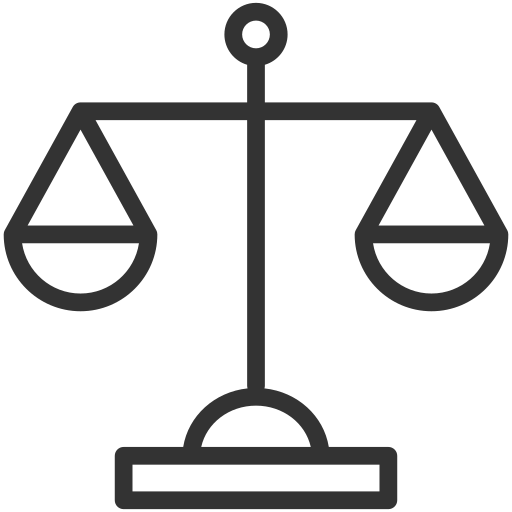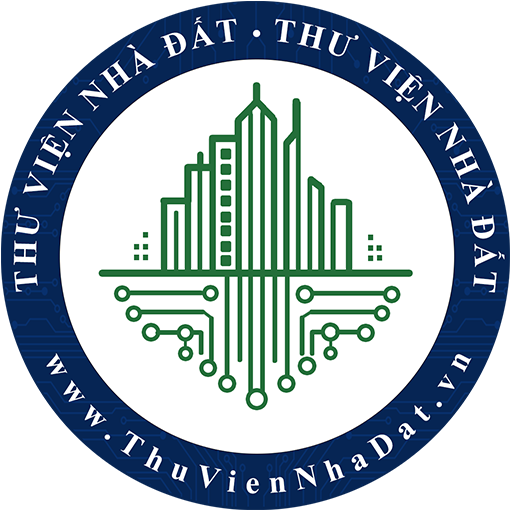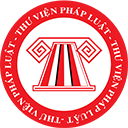Chứng chỉ lưu ký không có quyền biểu quyết có phải là cổ phần phổ thông không? Cổ đông phổ thông được thực hiện những quyền gì?
Nội dung chính
Chứng chỉ lưu ký không có quyền biểu quyết là gì?
Theo quy định tại Điều 140 Nghị định 155/2020/NĐ-CP:
Chứng chỉ lưu ký không có quyền biểu quyết là một loại chứng khoán do công ty con của Sở giao dịch chứng khoán phát hành cho nhà đầu tư nước ngoài trên cơ sở cổ phiếu của công ty niêm yết, đăng ký giao dịch.
Theo đó, Người sở hữu chứng chỉ lưu ký không có quyền biểu quyết có lợi ích kinh tế và nghĩa vụ tương ứng với cổ phần phổ thông cơ sở, trừ quyền biểu quyết.
Tổ chức phát hành có quyền tham dự Đại hội đồng cổ đông và biểu quyết trong trường hợp tổ chức phát hành cổ phiếu cơ sở lấy ý kiến cổ đông về việc hủy niêm yết nhưng không có các quyền khác về kinh tế liên quan đến cổ phiếu đó.
Mặt khác, khoản 6 Điều 114 Luật Doanh nghiệp 2020 quy định như sau:
Các loại cổ phần
...
6. Cổ phần phổ thông được dùng làm tài sản cơ sở để phát hành chứng chỉ lưu ký không có quyền biểu quyết được gọi là cổ phần phổ thông cơ sở. Chứng chỉ lưu ký không có quyền biểu quyết có lợi ích kinh tế và nghĩa vụ tương ứng với cổ phần phổ thông cơ sở, trừ quyền biểu quyết.
Như vậy, Chứng chỉ lưu ký không có quyền biểu quyết được hiểu là loại chứng chỉ lưu ký được phát hành dựa trên tài sản cơ sở là cổ phần phổ thông và có thể hiểu bản thân nó không phải là cổ phần. Vì vậy, việc sở hữu chứng chỉ lưu ký không có quyền biểu quyết sẽ không dẫn đến sự thay đổi về tỷ lệ vốn mà các nhà đầu tư đang nắm giữ trong công ty cổ phần đồng thời không làm ảnh hưởng đến vốn điều lệ của công ty cổ phần.

Chứng chỉ lưu ký không có quyền biểu quyết có phải là cổ phần phổ thông không? Cổ đông phổ thông được thực hiện những quyền gì?
Cổ đông phổ thông được thực hiện những quyền gì?
Theo quy định tại Điều 115 Luật Doanh nghiệp 2020 thì Cổ đông phổ thông có quyền sau đây:
- Tham dự, phát biểu trong cuộc họp Đại hội đồng cổ đông và thực hiện quyền biểu quyết trực tiếp hoặc thông qua người đại diện theo ủy quyền hoặc hình thức khác do Điều lệ công ty, pháp luật quy định. Mỗi cổ phần phổ thông có một phiếu biểu quyết;
- Nhận cổ tức với mức theo quyết định của Đại hội đồng cổ đông;
- Ưu tiên mua cổ phần mới tương ứng với tỷ lệ sở hữu cổ phần phổ thông của từng cổ đông trong công ty;
- Tự do chuyển nhượng cổ phần của mình cho người khác, trừ trường hợp quy định tại khoản 3 Điều 120, khoản 1 Điều 127 của Luật này và quy định khác của pháp luật có liên quan;
- Xem xét, tra cứu và trích lục thông tin về tên và địa chỉ liên lạc trong danh sách cổ đông có quyền biểu quyết; yêu cầu sửa đổi thông tin không chính xác của mình;
- Xem xét, tra cứu, trích lục hoặc sao chụp Điều lệ công ty, biên bản họp Đại hội đồng cổ đông và nghị quyết Đại hội đồng cổ đông;
- Khi công ty giải thể hoặc phá sản, được nhận một phần tài sản còn lại tương ứng với tỷ lệ sở hữu cổ phần tại công ty.
Ngoài ra, đối với cổ đông hoặc nhóm cổ đông sở hữu từ 05% tổng số cổ phần phổ thông trở lên hoặc một tỷ lệ khác nhỏ hơn theo quy định tại Điều lệ công ty có quyền sau đây:
- Xem xét, tra cứu, trích lục sổ biên bản và nghị quyết, quyết định của Hội đồng quản trị, báo cáo tài chính giữa năm và hằng năm, báo cáo của Ban kiểm soát, hợp đồng, giao dịch phải thông qua Hội đồng quản trị và tài liệu khác, trừ tài liệu liên quan đến bí mật thương mại, bí mật kinh doanh của công ty;
- Yêu cầu triệu tập họp Đại hội đồng cổ đông trong trường hợp quy định tại khoản 3 Điều này;
- Yêu cầu Ban kiểm soát kiểm tra từng vấn đề cụ thể liên quan đến quản lý, điều hành hoạt động của công ty khi xét thấy cần thiết. Yêu cầu phải bằng văn bản và phải bao gồm các nội dung sau đây: họ, tên, địa chỉ liên lạc, quốc tịch, số giấy tờ pháp lý của cá nhân đối với cổ đông là cá nhân; tên, mã số doanh nghiệp hoặc số giấy tờ pháp lý của tổ chức, địa chỉ trụ sở chính đối với cổ đông là tổ chức; số lượng cổ phần và thời điểm đăng ký cổ phần của từng cổ đông, tổng số cổ phần của cả nhóm cổ đông và tỷ lệ sở hữu trong tổng số cổ phần của công ty; vấn đề cần kiểm tra, mục đích kiểm tra;
- Quyền khác theo quy định của Luật này và Điều lệ công ty.
Cổ đông phổ thông được triệu tập Đại hội cổ đông trong trường hợp nào?
Theo quy định tại khoản 3 Điều 115 Luật Doanh nghiệp 2020 về nội dung này như sau:
- Cổ đông hoặc nhóm cổ đông quy định tại khoản 2 Điều 115 Luật Doanh nghiệp 2020 có quyền yêu cầu triệu tập họp Đại hội đồng cổ đông trong trường hợp sau đây:
+ Hội đồng quản trị vi phạm nghiêm trọng quyền của cổ đông, nghĩa vụ của người quản lý hoặc ra quyết định vượt quá thẩm quyền được giao;
+ Trường hợp khác theo quy định tại Điều lệ công ty.
- Yêu cầu triệu tập họp Đại hội đồng cổ đông phải bằng văn bản và phải bao gồm các nội dung sau đây: họ, tên, địa chỉ liên lạc, quốc tịch, số giấy tờ pháp lý của cá nhân đối với cổ đông là cá nhân; tên, mã số doanh nghiệp hoặc số giấy tờ pháp lý của tổ chức, địa chỉ trụ sở chính đối với cổ đông là tổ chức; số lượng cổ phần và thời điểm đăng ký cổ phần của từng cổ đông, tổng số cổ phần của cả nhóm cổ đông và tỷ lệ sở hữu trong tổng số cổ phần của công ty, căn cứ và lý do yêu cầu triệu tập họp Đại hội đồng cổ đông. Kèm theo yêu cầu triệu tập họp phải có các tài liệu, chứng cứ về các vi phạm của Hội đồng quản trị, mức độ vi phạm hoặc về quyết định vượt quá thẩm quyền.
- Cổ đông hoặc nhóm cổ đông sở hữu từ 10% tổng số cổ phần phổ thông trở lên hoặc một tỷ lệ khác nhỏ hơn theo quy định tại Điều lệ công ty có quyền đề cử người vào Hội đồng quản trị, Ban kiểm soát. Trường hợp Điều lệ công ty không có quy định khác thì việc đề cử người vào Hội đồng quản trị và Ban kiểm soát thực hiện như sau:
+ Các cổ đông phổ thông hợp thành nhóm để đề cử người vào Hội đồng quản trị và Ban kiểm soát phải thông báo về việc họp nhóm cho các cổ đông dự họp biết trước khi khai mạc Đại hội đồng cổ đông;
+ Căn cứ số lượng thành viên Hội đồng quản trị và Ban kiểm soát, cổ đông hoặc nhóm cổ đông quy định tại khoản này được quyền đề cử một hoặc một số người theo quyết định của Đại hội đồng cổ đông làm ứng cử viên Hội đồng quản trị và Ban kiểm soát. Trường hợp số ứng cử viên được cổ đông hoặc nhóm cổ đông đề cử thấp hơn số ứng cử viên mà họ được quyền đề cử theo quyết định của Đại hội đồng cổ đông thì số ứng cử viên còn lại do Hội đồng quản trị, Ban kiểm soát và các cổ đông khác đề cử.














